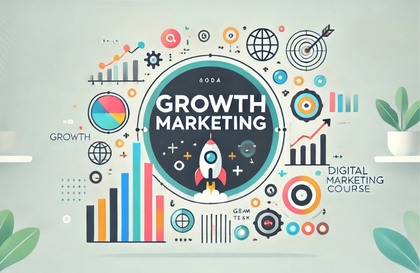Datarian consists of four members, all of whom are data analysts. Two of them worked in well-established data infrastructure environments such as Kakao, Coupang, and Ridi, and the other two started from scratch by loading data. After starting Datarian, the first two had a big realization. Data did not spring up from the ground. In a situation where there is no data infrastructure, what kind of data do data analysts analyze and reflect in decision-making? If you are thinking about data analysis that leads to action, if you are a startup data analyst, if you have to analyze data in an environment without data infrastructure, if you are thinking, 'Can I utilize data in my work?' If you are thinking about it, listen to this lecture.
Expand the pre-questions answered in Part 2
Ⅰ. Data analysis environment
Q1. How should data be loaded for early-stage startups?
Q2. In an organization with an old service and a large scale but not much data, should I start by asking to hire a data engineer? Or should I first show that I can do something with the data I have, even if it is small?
Q3. I think that analysis tools such as Amplitude and GA have become much more advanced recently, but I am curious about how much of the actual queries or coding is used.
Ⅱ. Starting data analysis
Q4. What should I know first when I first start using data? I feel overwhelmed by the overall indicators and the big picture. What should I do?
Q5. If a company wants to start working with data but doesn't know how to extract and organize the data, what would be a good place to start?
Q6. There are many who point out that presenting data and numbers is meaningless due to the lack of relevant information in very early-stage startups. What do you think about this?
Ⅲ. Using CS data
Q7. What is the main purpose of looking at data in the CS team?
Q8. If there is a method for collecting data to establish CX KPIs, please let me know.
Q9. What types of data are used to determine customer experience?
Q10. Since VOC data is collected from customers who have experienced a problem, it is difficult to represent all customers, and since the parameters themselves are smaller than the entire customer data, there are also some regrets about its reliability. As such, CX managers sometimes have doubts about VOC data. Is there a way to solve this?
Ⅳ. How to make good data-driven decisions?
Q11. What do you think about the biased way data is collected or analyzed to support the organization’s vision and goals in the data-driven decision-making process? I wonder how this can be addressed.
Q12. I have encountered many companies where data is only for reporting purposes, and in practice, confirmation and progress are made only when the above-mentioned orders are met. Is changing jobs the only answer to gain experience in making decisions based on data?
Q13. I am curious about the communication skills that lead to good data-based decision making. In particular, I think persuading decision makers is important but difficult. Do you have any know-how on how to persuade superiors?
Q14. I am curious if you have any know-how on how to communicate effectively when persuading decision makers with data analysis results.
Q15. I understand that organizational structure and data-based decision-making are deeply related. I am curious about successful cases of data-based decision-making and organizational structure.
Q16. It is very important to make decisions based on data, but when you focus too much on quantitative KPIs set by data, you run into problems in execution. I wonder how I can properly view data.
![[A hundred words are not as good as seeing once] Basic SQL for data analysis강의 썸네일](https://cdn.inflearn.com/public/courses/324566/cover/aa1fac55-6e80-4506-9c92-f32c2b65f93a/sql_basic.png?w=420)





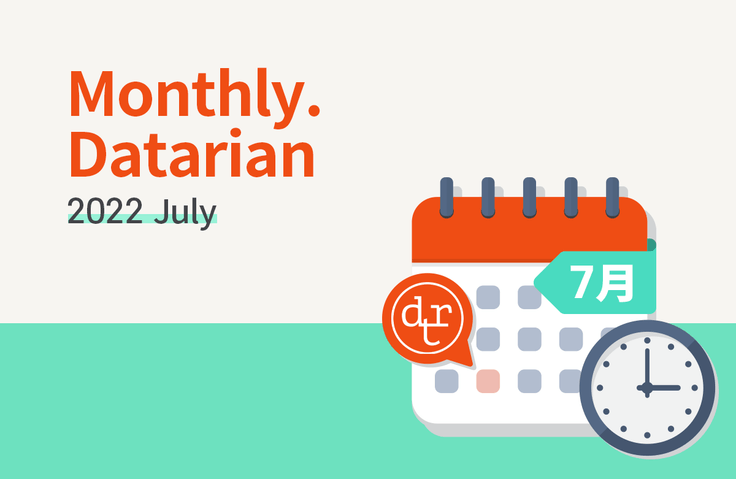


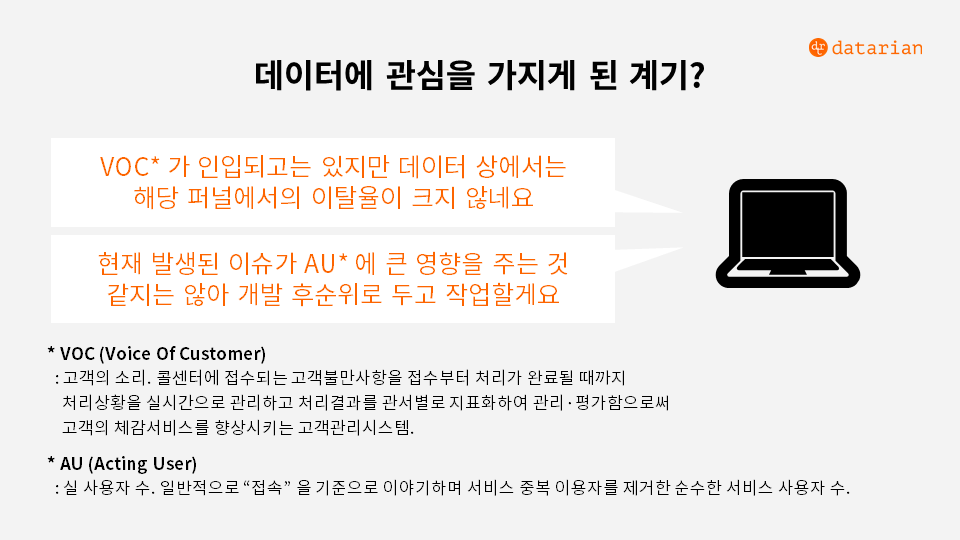

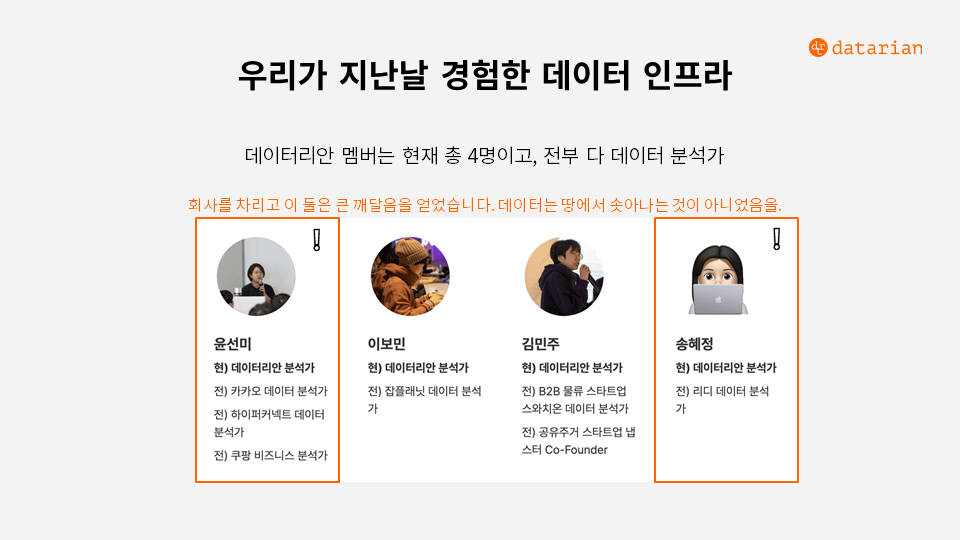
![[Practice Makes Perfect] Intermediate SQL for Data Analysis강의 썸네일](https://cdn.inflearn.com/public/courses/324568/cover/9f81ac3f-d663-49e7-9eda-61253189790c/sql_intermediate.png?w=420)
![[A hundred words are not as good as seeing once] Advanced SQL for data analysis강의 썸네일](https://cdn.inflearn.com/public/courses/324605/cover/141a32ce-69fe-42d9-9253-d2136e208464/sql_advanced.png?w=420)
![Effectively Persuading Marketing Plans Based on Data [Datalian Seminar Replay | October 2024]강의 썸네일](https://cdn.inflearn.com/public/courses/335163/cover/af19c098-8652-462d-8533-939a23e1d5bd/335163.png?w=420)
![Data-Driven Design Without a Data Analyst [Datarian Seminar Replay | November 2025]강의 썸네일](https://cdn.inflearn.com/public/files/courses/339608/cover/01kbpcbn9gv7ysm630hkz313gd?w=420)
![Free GA4 Course for Beginners [Datarian Seminar Replay | July 2025]강의 썸네일](https://cdn.inflearn.com/public/files/courses/338668/cover/01k38fk7pq2a3ht1pn7nwrk7s4?w=420)
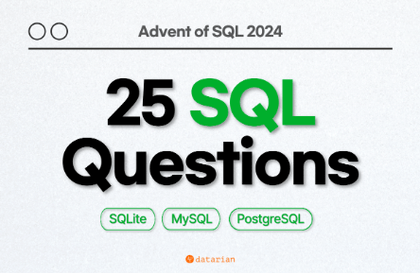
![Data Analysis Portfolio That Takes You Straight to an Interview [Datarian Seminar Replay | January 2025]강의 썸네일](https://cdn.inflearn.com/public/courses/336048/cover/c90f7e08-0953-41b6-9892-236f20b110ec/336048.png?w=420)
![Data Analyst, Which Company Should I Go to? [Datarian Seminar Replay | July 2024]강의 썸네일](https://cdn.inflearn.com/public/courses/334459/cover/22684393-748c-43e3-8282-fcd6fee701d9/334459.png?w=420)
![Data Analyst Career with Generative AI [Datalian Seminar Replay | May 2024]강의 썸네일](https://cdn.inflearn.com/public/courses/333839/cover/8abc6cdd-25bd-4a69-9527-16b9fc9cb460/333839.png?w=420)
![How are other companies doing funnel analysis? [Datalian Seminar Replay | March 2024]강의 썸네일](https://cdn.inflearn.com/public/courses/333329/cover/9e7725db-639d-469a-adac-5089658875a6/333329.png?w=420)
![How did a non-major become a data analyst? [Datalian Seminar Replay | January 2024]강의 썸네일](https://cdn.inflearn.com/public/courses/332976/cover/1c20f1ed-fb65-4c32-9624-4cedc370ed5b/332976.png?w=420)
![Senior Data Analyst's SQL Coding Test Know-how Revealed [Monthly Datalian Seminar Replay | December 2023]강의 썸네일](https://cdn.inflearn.com/public/courses/332774/cover/a9900f25-50a4-46f1-930d-e6ef03ea88f1/332774.png?w=420)
![Everything About Marketing Performance Analysis (feat. GA4) [Monthly Datarian Seminar Replay | November 2023]강의 썸네일](https://cdn.inflearn.com/public/courses/332465/cover/fc2a010b-e04d-48ee-b842-f3698bc66634/332465-eng.png?w=420)
![Beyond SNS Marketing to Offline Advertising with Data [Monthly Datarian Seminar Replay | October 2023]강의 썸네일](https://cdn.inflearn.com/public/courses/332241/cover/5d548964-3f42-4b6b-9e46-67cf2e1f670f/332241-eng.png?w=420)
![Complete Guide to Data Analyst Job Preparation by Industry Professionals [Monthly Datarian Seminar Replay | September 2023]강의 썸네일](https://cdn.inflearn.com/public/courses/331936/cover/9c693d54-1183-4dcf-bda8-a46e161c61d2/331936-eng.png?w=420)
![These days, hot side projects and ways to view data [Monthly Datarian Seminar Replay | August 2023]강의 썸네일](https://cdn.inflearn.com/public/courses/331782/cover/4683da6b-272f-4901-a0d9-a744f00289e9/331782-eng.png?w=420)
![Data Analyst Ask Me Anything [Monthly Datarian Seminar Replay | July 2023]강의 썸네일](https://cdn.inflearn.com/public/courses/331572/cover/251a81dd-6e3f-414f-9b3c-862567366618/331572-eng.png?w=420)
![GA4 Utilization Methods You Can Use Right Away Tomorrow [Monthly Datarian Seminar Replay | June 2023]강의 썸네일](https://cdn.inflearn.com/public/courses/331370/cover/e1ecc7a1-6c05-4951-857a-aa6a72eee87a/331370-eng.png?w=420)
![Data-Driven Content Marketing That Drives Business Growth [Monthly Datarian Seminar Replay | May 2023]강의 썸네일](https://cdn.inflearn.com/public/courses/331081/cover/b10ce0eb-8a35-4653-a3f5-488a06981d60/331081-eng.png?w=420)
![Data Analysis Skills You Can Use Right Away in Practice [Monthly Datarian Seminar Replay | April 2022]강의 썸네일](https://cdn.inflearn.com/public/courses/328708/cover/75cd40e3-b22d-42fb-a613-572707875ab4/328708-eng.png?w=420)
![Practice! Startup Data-Driven Decision Making [Monthly Datarian Seminar Replay | April 2023]강의 썸네일](https://cdn.inflearn.com/public/courses/330863/cover/313b64e2-ed51-42ef-8501-176e94ed6534/330863-eng.png?w=420)

